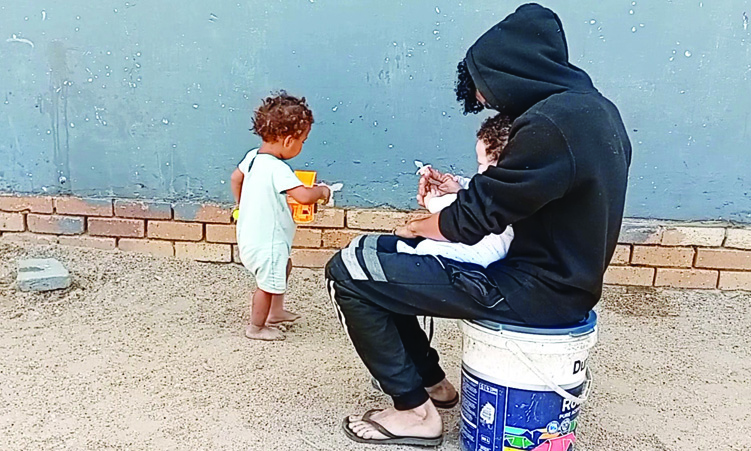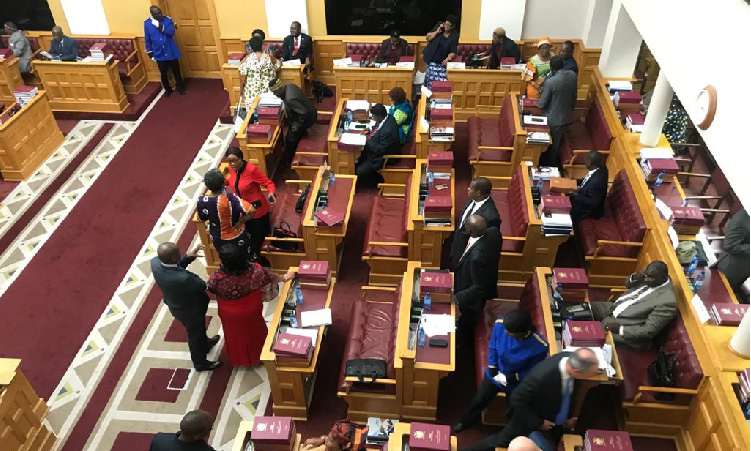WASHINGTON – A two-decade ban on people with HIV visiting or immigrating to the United States may end soon through a Senate bill aimed at fighting AIDS and other diseases in Africa and other poor areas of the world.
The US is one of a dozen countries – including Sudan, Saudi Arabia, Libya and Russia – that ban travel and immigration for HIV-positive people. Even China, said Senator John Kerry, Democrat-Massachusetts, recently changed that policy, deciding it was “time to move beyond an antiquated, knee-jerk reaction” to people with HIV.”There’s no excuse for a law that stigmatises a particular disease,” Kerry said on Tuesday at a speech to the Center for Strategic & International Studies HIV-AIDS Task Force.Even people with avian flu or the Ebola virus have an easier time than those with HIV when it comes to applying for visas, he said.Kerry and Senator Gordon Smith, Republican-Oregon, are trying to repeal the ban, first implemented in 1987 and confirmed by Congress in 1993.The two have attached their measure to legislation – which the Senate may pass this week – that would provide $50 billion over the next five years to fight AIDS and other diseases in Africa and other poor areas.Foreign citizens, students and tourists can apply for a difficult-to-obtain special waiver for short-term visits, but an HIV-positive person has little chance of obtaining permanent residency.Under current law, HIV is the only medical condition explicitly listed under immigration law.The Kerry-Smith provision would make HIV equivalent to other communicable diseases where medical and public health experts at the Health and Human Services Department – not consular officials at US embassies – determine eligibility for admission.Those with HIV seeking legal permanent residency would still have to demonstrate they have the resources to live in this country and would not become a “public charge.”The HIV ban was “adopted during a time of widespread fear and ignorance about the HIV virus,” said Allison Herwitt, legislative director of the Human Rights Campaign, the nation’s largest gay and lesbian civil rights group.Among the consequences, experts on HIV and AIDS who are themselves infected have been unable to attend conferences in the US.Students and refugees in the country who may be at risk of infection have been reluctant to seek testing or treatment.”Health care professionals, researchers and other exceptionally talented people have been blocked from the United States,” some 160 health and AIDS groups said recently in a letter urging Congress to end the current policy.”Since 1993, the International Conference on AIDS has not been held on US soil due to this policy.”Nampa-APEven China, said Senator John Kerry, Democrat-Massachusetts, recently changed that policy, deciding it was “time to move beyond an antiquated, knee-jerk reaction” to people with HIV.”There’s no excuse for a law that stigmatises a particular disease,” Kerry said on Tuesday at a speech to the Center for Strategic & International Studies HIV-AIDS Task Force.Even people with avian flu or the Ebola virus have an easier time than those with HIV when it comes to applying for visas, he said.Kerry and Senator Gordon Smith, Republican-Oregon, are trying to repeal the ban, first implemented in 1987 and confirmed by Congress in 1993.The two have attached their measure to legislation – which the Senate may pass this week – that would provide $50 billion over the next five years to fight AIDS and other diseases in Africa and other poor areas.Foreign citizens, students and tourists can apply for a difficult-to-obtain special waiver for short-term visits, but an HIV-positive person has little chance of obtaining permanent residency.Under current law, HIV is the only medical condition explicitly listed under immigration law.The Kerry-Smith provision would make HIV equivalent to other communicable diseases where medical and public health experts at the Health and Human Services Department – not consular officials at US embassies – determine eligibility for admission.Those with HIV seeking legal permanent residency would still have to demonstrate they have the resources to live in this country and would not become a “public charge.”The HIV ban was “adopted during a time of widespread fear and ignorance about the HIV virus,” said Allison Herwitt, legislative director of the Human Rights Campaign, the nation’s largest gay and lesbian civil rights group.Among the consequences, experts on HIV and AIDS who are themselves infected have been unable to attend conferences in the US.Students and refugees in the country who may be at risk of infection have been reluctant to seek testing or treatment.”Health care professionals, researchers and other exceptionally talented people have been blocked from the United States,” some 160 health and AIDS groups said recently in a letter urging Congress to end the current policy.”Since 1993, the International Conference on AIDS has not been held on US soil due to this policy.”Nampa-AP
Stay informed with The Namibian – your source for credible journalism. Get in-depth reporting and opinions for
only N$85 a month. Invest in journalism, invest in democracy –
Subscribe Now!









